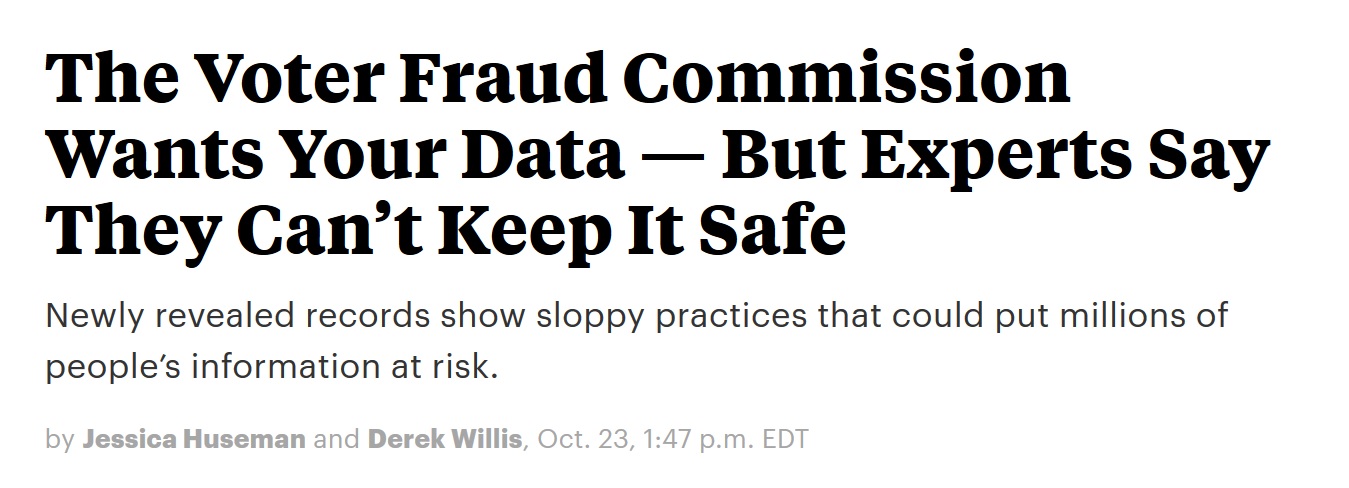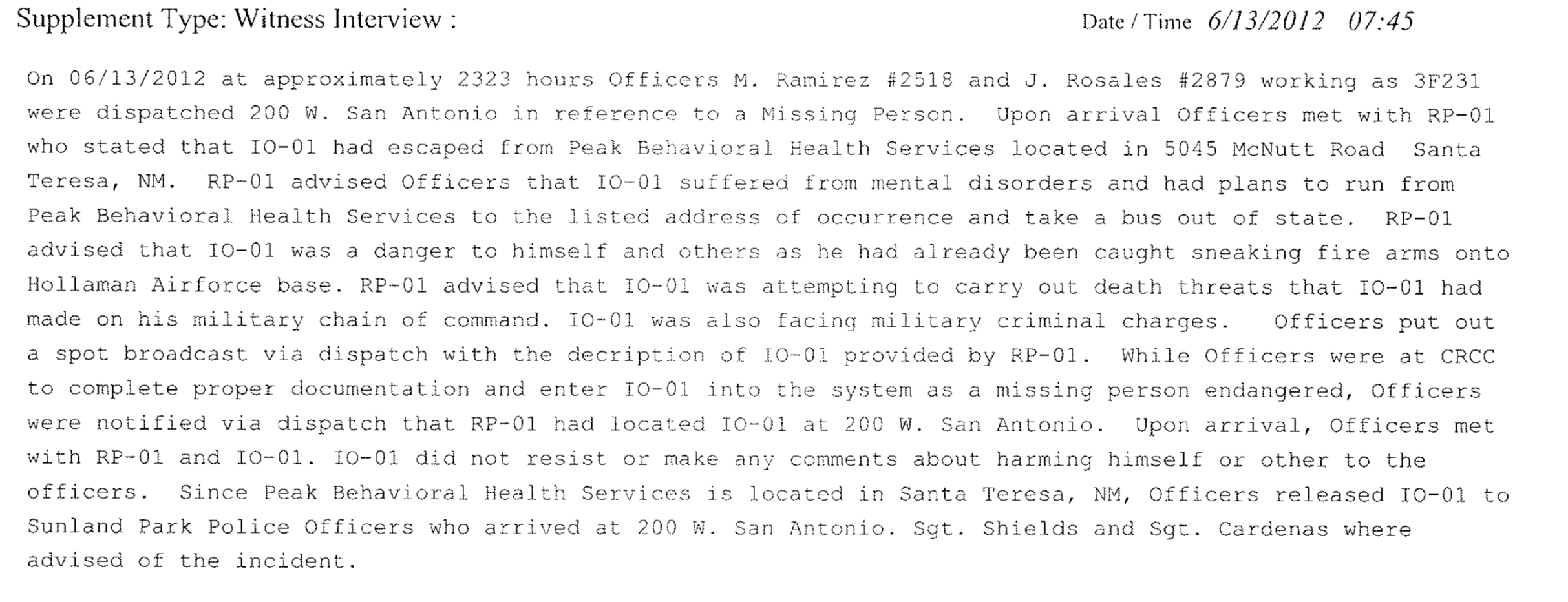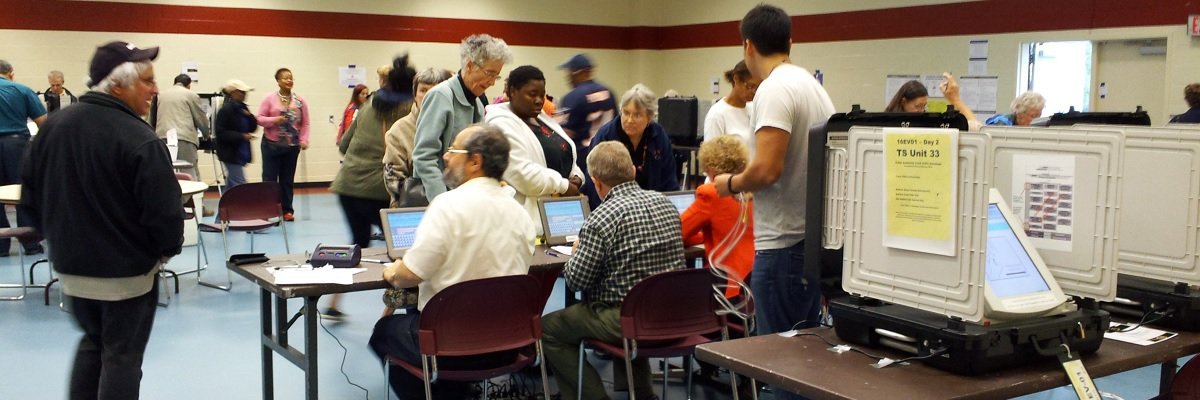Shockingly, public officials’ words do not always match up with their actions. Fortunately, public records can help the truth come out. In this week’s roundup, some ways you can double check what officials are up to with private data and public dollars, plus a way to recognize a public records hero for their transparency work.
If you’re feeling inspired by these requests, file a public records request of your own. And if you find a FOIA story worth sharing, send it over via email, on Twitter, or on Facebook, and maybe we’ll include it in the next roundup.
Checking Crosscheck while finding finding out what was happening with voter rolls
The Idaho Statesman’s Cynthia Sewell has a great piece looking into how public rhetoric didn’t match up with the facts when she dug into how Idaho shares private voter data:
Denney assured the public that other personal information collected on Idaho’s voter registration forms - a voter’s date of birth, driver’s-license number and the last four digits of the Social Security number - is not releasable under Idaho’s public records law. Kobach, he said, could not have it. In fact, Denney had already given it to Kobach.
The practice of sharing voter data went back to 2014 as part of the Interstate Voter Registration Crosscheck Program, Sewell reported, building off ProPublica reporting that found the information sharing program left the data of millions at risk.

New emails obtained by the Statesman via public records take that story even further:
Through a public records request, the Idaho Statesman obtained emails between the Crosscheck program and Idaho officials. The emails confirm that Crosscheck has repeatedly sent the server’s address and login information, all in one email, to more than 50 people around the country. The practice was followed as recently as this year.
The unredacted login information was clearly visible in the documents the Idaho Secretary of State’s Office gave the Statesman.
This year, according to one of the emails, Crosscheck was having trouble with its encryption-software program because it had been updated, and Crosscheck’s version was no longer compatible with it. Instead of upgrading its software, Crosscheck switched to “a free download” file compressor and encryption program and, again, sent the access information and password out via group email.
Already, some legislatures are now trying to remove Idaho from the information sharing program, with particular concern around the poorly secured data leaving state residents vulnerable to hackers.
Just charge it
Digging through credit card charges can often provide interesting story ideas and important public oversight - but only if someone asks for the bills. That’s what Richard Rainey and Jonathan Bullington did for The Times-Picayune, in a piece looking at how the New Orleans City Council spent more than $400,000 through credit card purchases over the past five years.
One council member racked up $107,000 in charges, ultimately reimbursing the city $8,952. Many council members said that they charged office supplies to the credit card to avoid using the city’s purchasing order vendor. Many council members also noted that they had come in under budget each year:
Head, one of the two citywide representatives, and her staff spent a combined $43,770 from February 2013 through September 2017. In a statement, Head said: “My office spends less than its allotted budget every year, and the expenses are for necessary items such as office supplies and the occasional ‘lunch and learn’ sandwich tray for the entire council staffs to attend a lunchtime education session with groups like the Regional Planning Commission or NOLA BA” (New Orleans Business Alliance).
It could be an interesting project to compare credit card policies, but maybe a more interesting public records follow up would be to dig into that city selected vendor: Why are council members stating that they have to avoid using it in the first place to get a good price, and what are the wider implications of that?
Past is prologue
Houston Channel 2’s Mario Diaz, Cathy Tatom, and Aaron Wische reported out what they learned from a 2012 arrest report of Devin Kelley. Five years later, Kelley would commit Texas’ deadliest mass shooting by an individual.
The report, which Channel 2 also posted in full, details earlier troubles:

Even during active investigations, there’s often older documents you can use to shed light on an evolving story.
Nominate a public records hero for the Annual Michael Donoghue Freedom of Information Award
Justin Silverman, executive director of the New England First Amendment Coalition, shares information on an upcoming award deadline for Freedom of Information heroes in New England:
The New England First Amendment Coalition is seeking nominations for its 2018 Michael Donoghue Freedom of Information Award. The FOI Award is given each year to a New England journalist or team of journalists for a body of work from the previous calendar year that protects or advances the public’s right to know under federal or state law. Preference is given to those who overcome significant official resistance. Nomination materials can be found here. The deadline for submissions is January 15, 2018.
If you see a great use of FOIA or have one of your examples you’d like to share, send it over via email, on Twitter, or on Facebook, and maybe we’ll include your story in the next roundup.
Image by Ben Schumin via Wikimedia Commons and licensed under Creative Commons BY 2.0.




